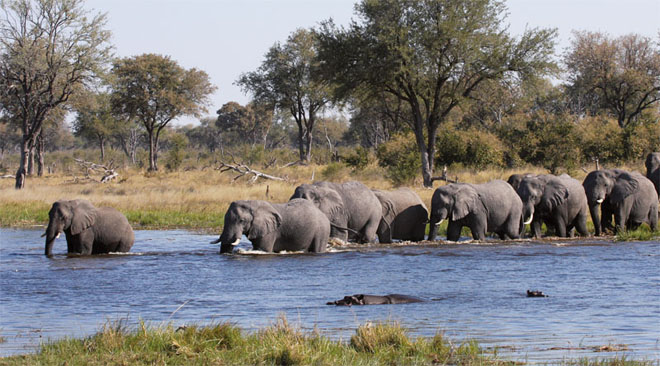
THE GREAT THIRSTLAND.
WE take the following from a recently published work descriptive of Southern Africa, entitled,
"The Great Thirst-Land:"—
"The sufferings endured on account of the drought were at times almost terrific. The throats of the oxen were so parched that they could not low. The dogs suffered even more than the cattle. Nor are the wild animals exempt from the plague of the land.
"When water becomes scarce in these thirsty plains, the whole of the wild animals that inhabit them, congregate round any pool that may be left, for with very few exceptions all have to drink once in twenty-four hours. The lions with the game, thus are led to their drinking-places not only to assuage their thirst, but to satisfy their hunger.
"To watch one of these pools at night, as I did in the northern Massara country, is a grand sight, and one never to be forgotten The naturalist and the sportsman can here see sights that will astonish them, and cause them to wonder at the wonderful instincts possessed by the animal kingdom.
"At such watering-places the small antelopes invariably drink first, the larger ones later on, and with them the zebras and buffaloes. After these come the giraffes, closely followed by the rhinoceros —conscious of his strength,—but trumpets forth a warning to all whom it may concern, that he is about to satisfy his thirst. The only animal that does not give place to the elephant is the rhinoceros; obstinate, headstrong, and stubborn, he may not court danger, but assuredly he does not avoid it. The elephant may drink by his side, but must not interfere with him, for he is quick to resent an insult, and I am told that when one of these battles takes place, the rhinoceros is invariably the victor. The elephant is large, of gigantic power, but the other is far more active, while the formidable horn that terminates his nose is a dreadful weapon when used with the force that he has the power to apply to it. I have been told on trustworthy authority that a rhinoceros in one of those blind fits of fury to which they are so subject, attacked a large wagon, inserted his horn between the spokes of the wheel, and instantly overturned it, scattering the contents far and wide, and injuring the vehicle to such an extent as to render it useless.
"The lion is not tied to time in drinking after it feeds, it comes to water, but it never would dare to interfere with the rhinoceros or the elephant. Where the buffalo exists in numbers, it is the principal prey of the lion; in other localities the antelope and the zebra are its food."